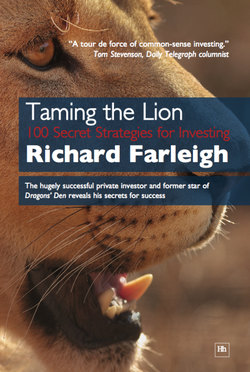Читать книгу Taming the Lion - Richard Farleigh - Страница 6
На сайте Литреса книга снята с продажи.
ОглавлениеA day in the life
In the first Gulf War, US forces overwhelmingly attacked Iraqi forces in Kuwait. It was an awesome display of military power, and almost the whole world was surprised and amazed at how powerful the US military had become. They had moved to a new level: missiles with cameras attached that could be steered through the front doors of buildings, and strange looking black planes called ‘stealth bombers’ that were invisible to radar. Iraq’s feeble response looked hollow following Saddam Hussein’s earlier “mother of all battles” threats, but if he could have mustered enough anti-American sentiment in other Arab nations, he may have pulled an armed rabbit out of the hat.
Financial markets around the globe were preoccupied with the battle. The oil market was naturally the most affected; the spot price per barrel was driven from the high teens to over 40 dollars, as traders contemplated a huge disruption in supply. The stock market worried about the recession that would result if the oil price stayed so high for too long. Interest rates were pushed sharply higher by the potential inflationary effect of the rising oil price.
Traders in the markets all scrambled to learn as much as they could about oil and the Middle East as quickly as possible. It was a change from the boring old employment numbers and inflation figures which everyone normally had to scrutinise. If Saddam set alight oil wells, as he threatened, would they really burn for a hundred years, or could they be extinguished by having big domes put over the top? And what would happen if he spilled a massive load of oil into the sea and set it on fire? Anyone who might know the answers suddenly got their fifteen minutes of fame. Oil experts were brought into the trading rooms and treated like celebrities as their information was needed to make a rational view of any of the markets.
From a trading room in Sydney, my perspective was just as confused as anyone else’s. Even though my job was to take risks with money, there was no way I had any competitive edge to allow me to think the markets had got something wrong. For the previous year or so I had been betting strongly on falls in interest rates. I believed that the economy would be weaker than generally expected and that inflation would be driven lower. For me this war was an interruption to a slow economic trend. War was too risky for a bet and I had cashed in my chips – I was out of the market.
Although I didn’t want to bet, I could still watch. Investors were looking for safe places to put their money: the gold price and the American dollar had risen. For gold a rally was normal — during a world crisis gold is the hero. It’s all about probabilities. Even if the world’s not about to end, there is a slightly greater chance of chaos. Paper money relies on people’s confidence in a government, whereas gold has intrinsic value. In post-war Germany, people needed a sack full of money to buy bread. If they had bought gold earlier they could have maintained their wealth. So the market’s extremely sensitive barometer to chaos was rocked by the Gulf War, and the gold price had been pushed significantly higher. Another reason gold rallied was the inflationary threat of the higher oil price, because inflation is bad for paper money but good for commodities.
The rally in the dollar also made sense. During a crisis it makes sense to have your money in the hands of a superpower, especially when you’ve seen the effectiveness of their military on CNN.
When Iraq started lobbing missiles into Israel, the war reached a critical stage. Saddam’s thinking was simple: if Israel could be provoked into retaliating, other Arab nations would see a broadening of the issues and perhaps come to Iraq’s defence.
Time passed. The dollar climbed even higher. I think gold was actually starting to struggle to hold its gains, and I remember thinking: “If gold can’t go higher on this news, when on earth will it? Maybe it’s time for investors to sell?” However the only bet I took was against the dollar. I reasoned that Israel would listen to the US, who would instruct them not to retaliate under any circumstances. Given that the allied forces were clearly superior, if there was no broadening of the conflict, the markets would soon calm down. So I sold dollars for marks and waited.
Fortunately for the world (and for me), Israel stayed passive and I was then able to close my position for a profit as the dollar later declined.
It can be profitable and exhilarating — but let’s start at the beginning
With the story above I have tried to reveal some of the thoughts that ran through my mind while I was trading. Investment can be nerve-racking and exciting. Even when there is confusion everywhere, it is possible to find ways to succeed by using logic and by understanding how markets work.
These are the things I love to discuss and analyse. However, in this book I need to start at the beginning. The first two or three chapters are essentially warnings and background ideas. Please be patient. Only after covering that material can we get into the fun part of how I believe you can make money from trading and investment.
With Peter and Marjorie Farleigh
